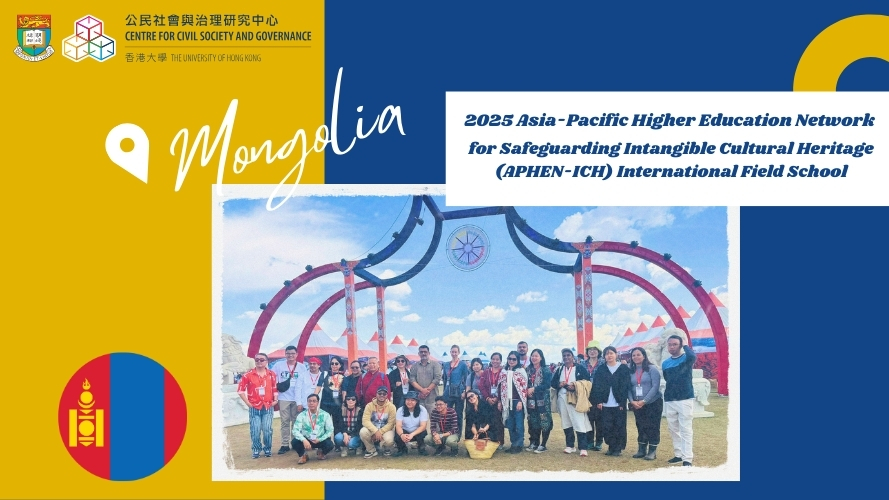As one of the founding members of the Asia-Pacific Higher Education Network for Safeguarding Intangible Cultural Heritage (APHEN-ICH), we are pleased to have attended the network’s International Field School hosted by the Mongolian National University of Arts and Culture (MNUAC) in partnership with ICHCAP and the APHEN-ICH Secretariat between 21-26 August 2025.
Mongolian Nomadic Culture and its Management
The Mongolian nomadic culture is deeply rooted in an intimate relationship with nature—traditionally, worshippers of Heaven, Sky and Earth, their beliefs are rooted in interdependence, as well as deep respect and protection for the land. Their beliefs form an essential part of Mongolia’s intangible cultural heritage, including traditional practices and art form, such as songs, rituals and festivals. As part of the decentralised regional development policy of Mongolia, the Mongolia National Centre for Cultural Heritage identifies and leverages unique characteristics of each region to support and coordinate diversified development, cooperation and specialisation. This allows a sense of uniqueness among different regions while pursuing a holistic regional vision.
Reflecting on Hong Kong’s Rural Revitalisation️
Dr. Jessica Williams and Dr. Vivian Chu presented their work on “Rural Revitalisation: Collaborative Governance for Harnessing Cultural Heritage”. CCSG advocates for a more holistic village cluster approach in rural revitalisation. Having started our revitalisation efforts in Lai Chi Wo, we extended them to Mui Tsz Lam and Kop Tong, where our projects focus on identifying and building on natural and cultural assets of each village. The effect is that the facilities, activities and resources offered by the villages can complement one another and collectively more value is generated for society. This sparked lively discussion amongst the participants regarding policies and strategies to build more supportive environments for ICH transmission.
Category : Event

